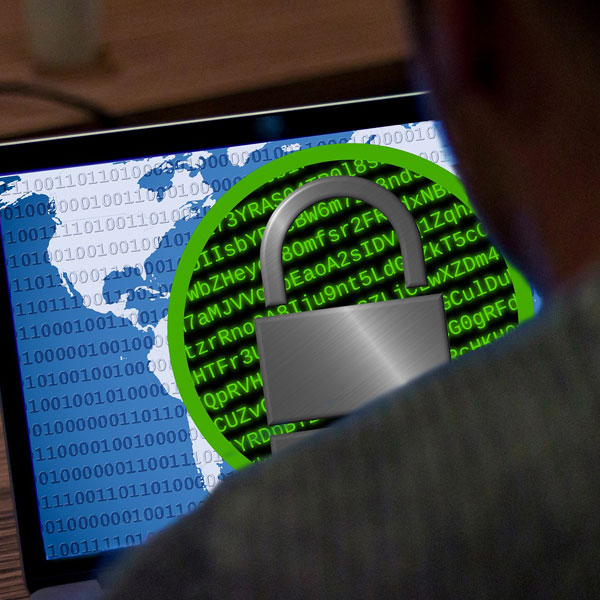Should You Insure Your Businesses Against Losses from Ransomware?

Ransomware attacks are one of the most common types of digital security threats globally. Currently, a ransomware attack is carried out nearly every ten seconds in the United States, and its prevalence is growing as a preferred criminal strategy.
What Is a Ransomware Attack?
Malware will infect an organization’s network and lock down its files and data with ransomware attacks. Usually, this occurs after a user has opened an email with a malicious attachment that contains the malware. The data is then held for ransom. Cybercriminals will often threaten to delete the information if the organization fails to pay the ransom. Organizations that collect sensitive information, such as healthcare entities, financial companies, and governmental agencies, are vulnerable to these attacks. Despite this, all businesses can become a target of ransomware since most cybercrime is a matter of convenience.
With ransomware attacks reaching record highs in 2021, the threat of losses related to this type of attack is becoming more concerning for many business owners and managers. For example, the banking industry saw a 1318% increase in ransomware attacks. In addition, the overall global attack volume increased by 151% in the first six months of 2021. Even more threatening is the fact that every month that goes by has more ransomware attacks than the previous month.
The Small Business Administration reports that 88% of small business owners feel vulnerable to a cyber attack. Nearly half (46%) of all small businesses have been a target of a ransomware attack at some point in time. Because of the increase in this type of attack, many business owners may opt to purchase insurance to protect their business from a ransomware attack.
What Does Cyber Liability Insurance Cover?
There are several key things that cyber liability insurance can protect from, including:
- Extortion Liability: Cyber liability insurance can reimburse for expenses associated with the losses arising from a threat of extortion, such as those experienced with a ransomware attack.
- Data Breach Management: This coverage will pay expenses related to the investigation, management, and remediation of a breach, including customer notification, credit check support, and associated legal costs.
- Network Security Liability: This coverage is for costs related to third-party damages due to denial of access and theft of third-party information.
- Media Liability: Media liability coverage will cover expenses associated with actions such as website vandalism and intellectual property rights infringement.
The types of coverage and details of coverage exemptions may vary depending upon the business needs. Some types of coverage may even apply to settlements, court judgments, and regulatory fines related to noncompliance. But as every business owner knows, insurance with greater coverage has much higher premiums. For this reason, most small business owners will carry approximately $1 million in cybersecurity coverage.
Does Your Business Need Coverage?
It can be difficult to decide whether to get this type of insurance. While the threat of a ransomware attack is pressing, adding new expenses to any small business in the current economic environment is also problematic. However, if you question whether your company would benefit from cybersecurity insurance, there are several recommendations to consider. In addition, certain types of businesses may benefit from this type of insurance more than others, such as:
- Companies with sensitive data. Companies that collect and store sensitive or personal information, such as credit card numbers, customer contact information, or Social Security numbers, are at high risk of a ransomware attack. This trait is why financial institutions, governmental agencies, and healthcare organizations are all high-risk targets; each of these entities has a trove of valuable information.Any company that collects sensitive data may benefit from first-party coverage, which will cover all or part of the ransom demanded depending upon the policy’s coverage limits. This type of insurance can prevent or minimize the impact of financial losses from a ransomware attack.
- Companies with high revenue or valuable assets. These companies are a natural target for ransomware attacks because the criminals assume they can afford to pay high ransoms. For these companies, cybersecurity insurance can reduce financial risk.
- Companies with many customers. Companies with a broad customer base are another high target for ransomware attacks because if the data can be accessed, they have much more valuable data. And these companies can be subject to laws related to protecting consumer data.
The bottom line is that ransomware attacks are becoming a greater threat for nearly all companies, including small businesses. Insurance may be the best option to protect from financial losses related to these attacks, but it often depends on the unique characteristics of your company. To learn more about cybersecurity insurance, contact Sagacent Technologies today.
Sagacent Technologies offers technology management and support, including proactive/preventative maintenance, onsite and offsite data back-ups, network and security audits, mobility solutions, disaster planning, and emergency business resumption services. The company serves clients of 10 to 150 employees within the Silicon Valley region.
